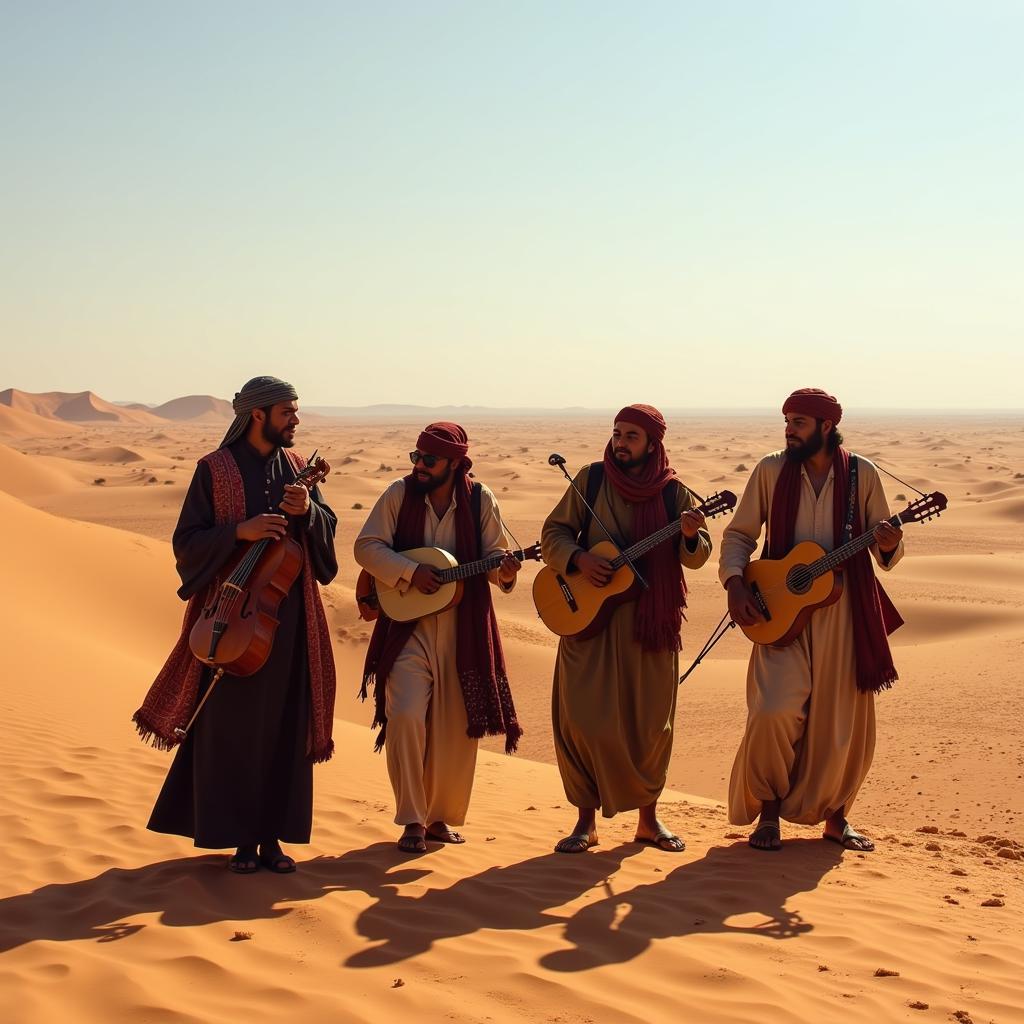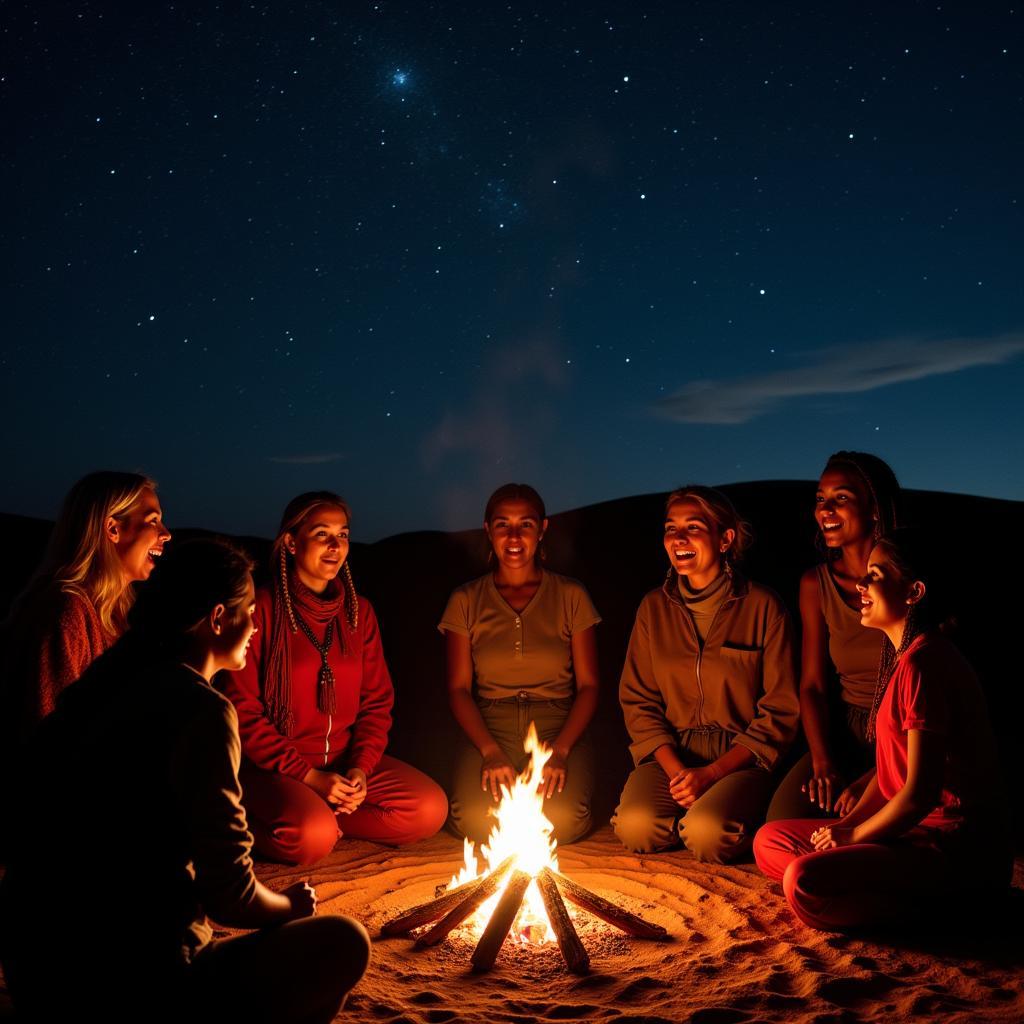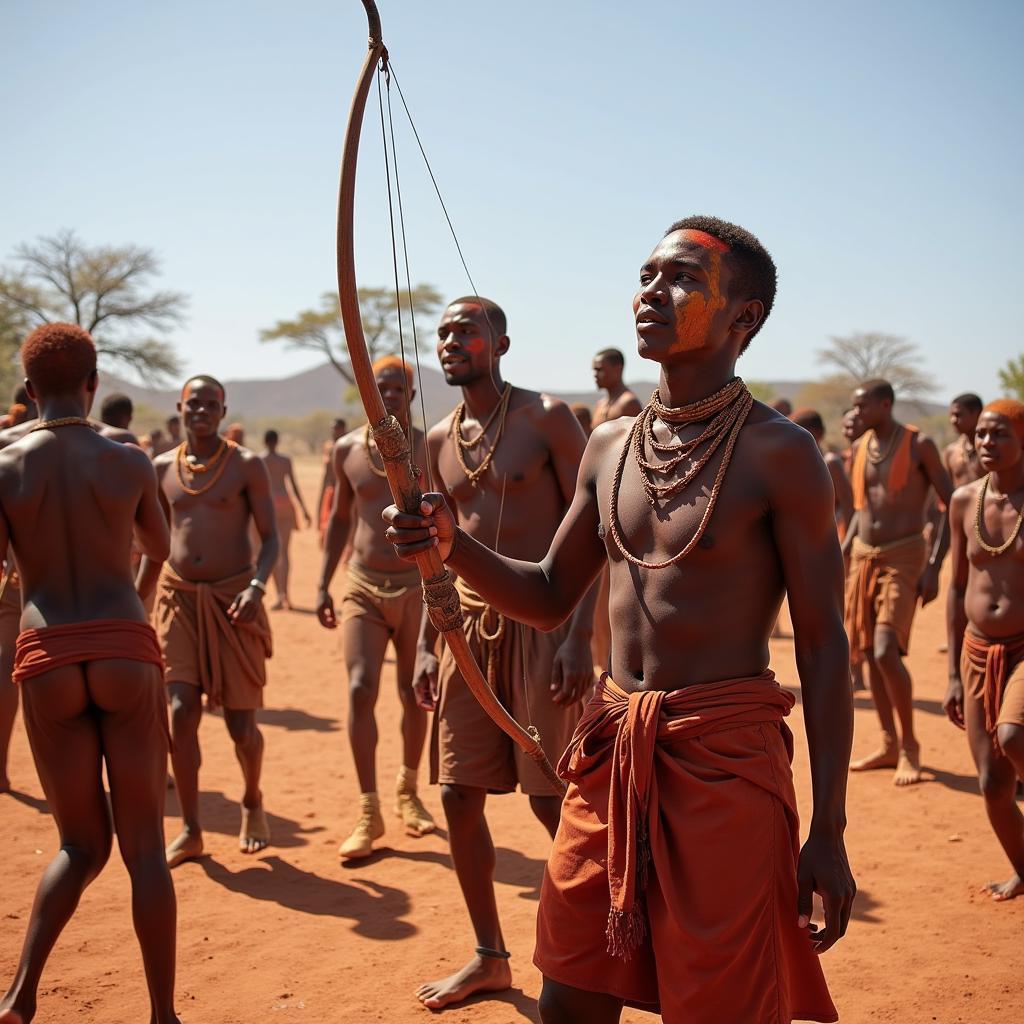The Soulful Echoes of the African Desert Song
The vast and unforgiving landscapes of Africa’s deserts have inspired a rich tapestry of musical traditions. From the haunting melodies of the Berber nomads to the rhythmic chants of the San people, the African Desert Song is a testament to the resilience and creativity of those who call these arid regions home. These songs are more than just entertainment; they are deeply embedded in the cultural fabric of desert communities, serving as vehicles for storytelling, spiritual expression, and social cohesion.
 Nomadic Musicians in the Sahara Desert
Nomadic Musicians in the Sahara Desert
The Power of Song in a Challenging Environment
Life in the desert is a constant negotiation with the elements. Scarcity of resources, extreme temperatures, and the ever-present silence shape the lives and perspectives of desert dwellers. In this context, music becomes an essential tool for survival, offering a means to connect with others, find solace, and celebrate life’s precious moments.
The African desert song is characterized by its raw emotion and evocative imagery. Lyrics often speak of the challenges and triumphs of desert life, weaving tales of love, loss, migration, and the search for water and pasture. The music itself is often repetitive and hypnotic, reflecting the cyclical nature of life in the desert. Instruments, often crafted from natural materials like gourds, animal skins, and wood, produce sounds that blend seamlessly with the desert wind.
 Women Singing Around a Fire in the Namib Desert
Women Singing Around a Fire in the Namib Desert
Cultural Expressions Across the Sands
Each desert community in Africa boasts its own unique musical traditions. In the Sahara, the Tuareg people are renowned for their melancholic melodies played on the imzad, a single-stringed fiddle. The Berber people of North Africa, known for their vibrant culture, have a rich repertoire of songs and dances that accompany important life events, from births and weddings to harvests and religious festivals.
Further south, in the Kalahari Desert, the San people, among the oldest cultures on Earth, use music and dance to connect with their ancestors and the spirit world. Their trance-inducing rhythms, often played on instruments like the hunting bow and the ankle rattle, are believed to have healing powers.
 San People Performing a Trance Dance in the Kalahari Desert
San People Performing a Trance Dance in the Kalahari Desert
The Enduring Legacy of the African Desert Song
The African desert song, passed down through generations, continues to thrive in the face of modernization. It serves as a vital link to the past, preserving cultural identity and ancestral knowledge. As the world increasingly recognizes the importance of cultural diversity, these unique musical traditions offer a window into the rich tapestry of human experience.
FAQs
- What are some common instruments used in African desert music? Common instruments include the imzad, kora, ngoni, various drums, flutes, rattles, and the human voice.
- Are there recordings of African desert music available? Yes, many recordings showcase the diversity of African desert music. You can find them online or in specialized music stores.
- Do the songs typically have a specific purpose or meaning? Yes, the songs often serve specific purposes, such as storytelling, healing rituals, celebrations, or passing down knowledge.
- Are there efforts to preserve these musical traditions? Yes, various organizations and individuals are dedicated to documenting, preserving, and promoting African desert music for future generations.
For more information about the diverse cultures and wildlife of Africa, check out these articles:
- Discover the captivating world of African birds list of North Africa.
- Explore the fascinating African history timeline.
- Learn about the intriguing African deer thing.
- Watch captivating African animals video youtube.
- Expand your knowledge with these 10 facts about the African continent.
The African desert song, with its raw emotion and powerful imagery, is a testament to the human spirit’s ability to find beauty and meaning even in the harshest of environments. These songs offer a glimpse into a world shaped by the vastness of the desert, reminding us of the power of music to connect us to ourselves, each other, and the natural world.
For inquiries or assistance, feel free to contact us:
Phone: +255768904061
Email: [email protected]
Address: Mbarali DC Mawindi, Kangaga, Tanzania
Our dedicated customer support team is available 24/7 to assist you.